|
A new decree requires that sea bathers in Thailand use “machines” for changing. The decree also requires full length swimming suits and bans “wet burkini” contests and other lewd behavior on the beaches. The bathing machine is a simple, and highly practical device, widely used on European beaches until the First World War (when they were all confiscated for use on the Western Front). Essentially its a shed on wheels, with one door at one end and another door at the other end. The machine is parked near the road, the tourists enter and change into their swimming suits while the operators push the machine down into the water where the tourist can step down to enjoy the sea. The machine in Pictures The French are different
Pandering to Islam? There has been speculation that the new measures are to placate Muslim separatists that have been setting off bombs at seaside resorts. However, Private Tye has discovered that is part of the campaign for “Thainess” and that the police are more concerned about topless men than women. This follows from four men being arrested for being topless at Chiang Mai's Songkran festival earlier this year.
0 Comments
People aged over sixty now account for 50% of Thailand's population according to the Ministry of Health, Department of Creative Statistics. Medical care is now better and people live healthier lives. They smoke and drink less, and have a balanced diets, said a Ministry Spokesman. In order to get the facts, Private Tye interviewed Doctor Makeupalai, Director of the Creative Statistics Department. Private Tye: Over sixties account for more than 50% of the population but in 1996 they accounted for only 15%. So, people in Thailand are living longer? Dr. Makeupalai: Yes that's right. Statistically, they are living longer. Private Tye: How do you know there are so many over 60s? Have you counted them? Dr. Makeupalai: No, of course not. But we have certificates for everybody who is born and dies in Thailand. These are in our data base. So if a person was born in Thailand and there is no death certificate we know how old they are. Private Tye: What about people who were born here, emigrate and die in another country? Makeupalai: You mean like my uncle? He was born in Bangkok in 1950, he emigrated to America in 1970 and died there of a cocaine overdose in 2000? Private Tye: Yes, do you have his death certificate? Makeupalai: No, he is still in our database. Aged 66. Private Tye: But he is dead? Makeupalai: Only biologically, he is still alive statistically. Private Tye: What? Makeupalai: You do not know much about population statistics do you? There were people who were biologically dead but statistically alive in 19th Century Russia. Have you never read Gogol's “Dead Souls”? Private Tye: I'm still confused. Makeupalai: You have to remember that dead people are much more active than they used to be. They have credit card debt that grows every year though compound interest. And they have active facebook pages which are updated by their friends. You can not right them off statistically. Private Tye: So, every year there are more people that are biologically dead on your data base? And every year they get older? Makeupalai: Exactly. Private Tye: So that's the reason for the increase in over sixties? Makeupalai: No, no, we are a creative department, there is much more to it than that. “Thailand's Population” is a wonderful term, it reminds me of “Unemployment” in Britain. Every year the British Government changes the denotation of “Unemployment” and every year the unemployment statistics go down. Our population database used to include only Thai nationals. A few years ago we started to include foreigners with residents permits. These tend to be older people, so, our over sixties stats improved. Last year we started to include foreigners with retirement visas, these people have to be over sixty and there are hundreds of thousands of them, so, the stats rocketed. Private Tye: So, are people living longer, biologically speaking? Makeupalai: Of course not. Just think about all the young people you know who have died of cancer and heart disease in the last five years. This didn't happen in the 1970s. Thais are dropping like flies from pollution and industrialization. Private Tye: So, the market for medical products for old people is not so good? Makeupalai: Its good. The market for adult diapers has nothing to do with old age. As to robots, they are no good for people who are biologically alive, but for the biologically dead they are the perfect carers. Private Tye: Thank you Dr Makeupalai.
An elite force of police has been charged with clearing Pokemon from the streets of Bangkok. Each policeman has been assigned one Pokemon character to hunt down. As Thai policeman are not very good with books, each has been given a balloon with his Pokemon target on it. However, the balloon assignment has caused dissatisfaction, resentment and conflict among the fifty man squad. Policeman Plod was close to tears, “I wanted Charmander but got Pikachu. Charmader is really cool but Pikachu is a joke.” He told Private Tye. “All my friends will laugh at me when they see me with a Pikachu balloon.” he continued. Sargent Scuffer was equally distraught. Private Tye found him lying on the floor drumming his heels on the ground, he was having a temper tantrum and screaming “I hate Bulbasaur, everybody does, the Colonel kept the Flying Charmander for himself, its not fair, I hate him, I hate him.” Constable Copper tried to take the Curlypuff balloon away from Gruppenfuhrer Filth, but Filth stamped on Copper's toe which sent him running home crying for his mummy. The threat from Pokemon can not be underestimated. One prominent newspaper has linked the presence of Pokemon to the Brain-death of officials at Thailand's Government House. While, in Cambodia, Pokemon have taken over the Genocide Museum. The real story from the Bangkok Post:
Police are preparing to arrest motorists and pedestrians who play Pokemon Go on 10 major roads in Bangkok, allegedly to reduce accidents caused by the game. A team of 50 officers equipped with mobile phone cameras will patrol the streets and take photos of violators, acting city police chief Sanit Mahathavorn said, referring to their new role as the "catchers of Pokemon catchers." The operation, which is intended to limit the areas where players can catch the game's animated creatures, will target those searching for the critters especially on crowded Sukhumvit and Phaya Thai roads. Others are Rama I, Rama IV, Henri Dunant, Sathon, Phetchaburi, Phahon Yothin, and Vibhavadi Rangsit roads as well as a street circling the Victory Monument, Pol Lt Gen Sanit said. These areas will be made no-go zones for Pokemon hunters because officers have found the number of road accidents related to the game is increasing. Authorities were unable to give any statistics on the number of accidents. They said Sunday this is because they are still trying to arrive at an estimate of how many accidents can be attributed to the game. Players will be fined up to 1,000 baht if they get involved in risky behaviour, such as using their phones while running along streets or hindering traffic flow by careless driving. Pedestrians who play Pokemon Go in an "inappropriate manner'' also face a fine. DSG, a Thai manufacturer of diapers, says adult diaper sales have grown 30% this year, that they expect that the adult diaper market will be bigger than the baby diaper market within ten years.
According to the Thai government, Thais are living longer and they expect that 20% of the population will be over 60 by 2020. However, it is doubtful that this is the explanation. It can be noted that DSG advertising is aimed at Caucasians rather than Thais. Their adverts show old, white, people (who look like the editor of Private Tye), looking happy and satisfied. It might be supposed that this advertising is targeting the huge number of Europeans and North Americans who have retired to Thailand. Does this mean that all Caucasians, that reach retirement age, are incontinent? On retirement Europeans used to be given a golden watch, now they get a packet of Pampers? Perhaps not. Caucasians retired in Thailand love to get dressed up and go out to dinner. They like to frequent fashionable Thai restaurants to show off. However, most of them experience difficulty with the Thai food and can not made it to a restaurant washroom in time. Now, they can solve the problem. We can call them “the black tie and diaper set”. But none of these explanations is correct; in fact, it has nothing to do with old people. Private Tye research has determined that most adult diapers are bought by Thais in their late twenties and thirties. These people have got into the habit of putting on an adult diaper before opening any letter from the bank. When they see how much they own on their credit card, mortgage, car and student loan, they inevitably have “an accident”. The real story from Coconuts Bangkok: Thailand's population increase in elderly residents comes at a time when living and education costs are rising along with economic development that has outpaced neighbors, according to World Bank. The government estimates that households spend almost one third of their income on caring for elderly relatives, and KGI Securities estimates that healthcare spending will go as high as 7 percent of the gross domestic product by 2026, up from 4.5 percent in 2015. In personal products, diaper maker DSG International Thailand PCL has seen adult diaper sales grow 30 percent this year, and expects double-digit growth over the next five years, said its chief operating officer. "We see Thailand moving in the direction of Japan, where the adult diaper market will become larger than the baby diaper market, perhaps in 10 years' time," Justine Wang told Reuters. Another company seeing opportunity in the demographic change is medical equipment supplier Samaphan Health which, with Taiwan's Apex Medical Corp, sells mattresses to prevent bed sores as well as respiratory products to aid sleep. "Demand from wealthy clients is very strong," said Managing Director Chinnakarn Samalapa. Sales of its elderly care products have grown 10 percent annually since 2011 and will continue growing,” he said. "They don't mind spending to improve the quality of life for elderly relatives." With so much money being spent on care, the government is considering allowing reverse mortgages which would allow elderly homeowners to convert some of their home value into cash — an initiative that would further boost the market for goods and services targeting the elderly, economists said. If you are a fun loving sociopath, the trending place to play Pokemon Go is now the Genocide Museum in Phnom Penh, Cambodia. The Tuol Sleng museum is a “must see”, and you can not really go to Cambodia without being able to tell your friends you have been there. For fashion conscious visitors to this tourist attraction, beach clothes are the trend, and it is a great place to show off your legs. However, its not Dracula's Castle, a grim Victorian Prison or even a concentration camp with wire and watch towers. In fact it just a boring three storey school building which housed the Khmer Rouge Security Prison 21, and was used for the murder of 15,000 Cambodians. There is not much to see, there is the map of skulls, of course; but the rest of it is mostly dull, black and white photographs of murdered children. Not a lot for you to post on Instagram, so why not enjoy Pokemon Go while you are here. Tuol Sleng has a “Pokemon Battleground”, so lots of excitement there. Coming soon, Private Tye T-shirts with the legend: “I am a moron who played Pokemon at the Cambodian Genocide Museum”.
In 2003, thirty percent of visitors to Cambodia went to see the Killing Fields. Now they do not even rank in the top ten of the country's attractions. There are lots of new things to do. White twenty year olds can go binge drinking in Sihanoukville and throw up on its beautiful beaches. They can go to a tattoo shop and get inked in oriental symbols, back home in Cleveland they can show them off to friends as old mystic things (when in fact they say “I have leprosy, stay away”). If they have not passed out by nightfall they can watch jugglers playing with fire sticks, just as they have done a hundred times before (why is this still a thing?). But its not just the new attractions. In 1979 hundreds of people being murdered every day, just because a political leader was a psychopath, was unusual. Today it is common place. There are dozens of on-going killing fields throughout Asia, and North Africa. All of them senseless and all of them instigated and perpetuated by psychopathic politicians. Who would want to visit a place where people were massacred twenty years ago, when there are so many fresh bodies on the ground elsewhere? The 2003 Report From National Geographic:
The sight of 8,000 human skulls in a glass shrine stuns visitors into silence. Outside, where cattle usually graze, human bones sometimes come unearthed after heavy rains. In Cambodia, nine miles (14.5 kilometers) from Phnom Penh, the "killing fields" of Choeung Ek have become a tourist attraction, horrifying and fascinating. Choeung Ek is one of thousands of other such sites around the country where the Khmer Rouge practiced genocide during the late 1970s. "There are two things you must see in Cambodia," says Scott Harrison, a traveler from Australia. "Obviously one is Angkor Wat. But the other is the killing fields outside Phnom Penh." In the chronicle of 20th century horrors, Cambodia ranks high. For much of the last three decades, Cambodia has suffered through war, political upheaval and massive genocide. Recently Cambodia has begun to revive. Its dark past is part of the reason: Tourist curiosity about Cambodia's genocide has become big business. "Tourism has increased by 40 percent every year since 1998," says Chhieng Pich, economic counselor at the Cambodian embassy in Washington, D.C. "Nearly all tourists that visit Cambodia will go see Angkor Wat. Over 30 percent will visit the killing fields, too." Few sights in one country can differ more markedly. Angkor Wat, the early 12th-century temple rediscovered in the 19th century (and designated a World Heritage Site in 1992 by UNESCO), reflects a profound spirituality. 1.7 Million Cambodians Dead The killing fields document death. From 1975 to 1979, Pol Pot and his Khmer Rouge soldiers killed 1.7 million Cambodians, or 21 percent of the population, according to Yale University's Cambodia Genocide Program. A soccer-field-sized area surrounded by farmland, the killing fields contain mass graves, slightly sunken, for perhaps 20,000 Cambodians, many of whom were tortured before being killed. The bordering trees held nooses for hangings. A memorial building stands in the center of the killing fields. Many of the skulls inside were pulled from the mass graves. Hundreds of Cambodians now make a living by guiding visitors through the killing fields and other genocide-related sites. Many guides tell harrowing personal stories of how they survived the Khmer Rouge, often by becoming refugees in Thailand. You are fooling yourself if you think that it is just coincidence that Pokemon Go was released just one day before the Referendum on Thailand's new constitution. It is obvious that something secretive and sinister is happening.
Think what has occurred in the last month: Aug 2: Plans to track all foreigners' mobile phones with special SIM cards Aug 6: Pokemon Go released one day before referendum Aug 9: A Pokemon caught at Government house Aug 9: Pokemon Go banned from Government buildings etc. Aug 10: Regulators threaten to ban Pokemon Go completely What most people do not realize is that the Pokemon Go Application only makes Pokemon visible. The Pokemon themselves were already there. In fact they have been living amongst us for a long time, but nobody knew. Everybody should see the CBS TV series “BrainDead” set in Washington. Alien insects crawl into peoples ears, eat half their brain and “take over” the other half. Congressmen, aids, Government officials, policemen, academics and journalists are all effected, but nobody notices. Ask yourself, if the same thing happened in Thailand, would anybody notice? “BrainDead” is close to the truth but not exact. Its not insects but Pokemon that are making the attack. Remember Pokemon are incorporeal, so they have no problem getting into your brain. But if you still need convincing, just watch a teenage geek staring at Pokemon Go on his phone, wondering about like a somnambulist, trying to find a rare Pokemon. Isn't it obvious that he has lost half his brain? The real story from Khaosod: Telecommunications regulators threatened to ban Pokemon Go if developers refuse to restrict the areas where it is played. Acknowledging it was unsure it had the legal authority, the National Broadcasting and Telecommunications Commission, or NBTC, on Wednesday said it would ban the game if its San Francisco-based developer does not respond to their request to limit areas where Pokemon appear. “If they do not proceed, we might have to do what the prime minister wants, which is banning the game,” said Takorn Tantasith. “Russia and Iran also banned it.” After being widely misrepresented in the media as the force behind bringing Pokemon Go to Thailand, telecommunications conglomerate True Corp was summoned by the commission Tuesday and asked to deliver its message to game developer Niantic. Takorn said he’d also like to know if Niantic could limit it to certain hours. True clarified they weren’t involved with the game and only hold a license for the characters. The Pokemon cartoon has appeared on its TrueVisions satellite service. Nevertheless, the company said it would do what it could. On Wednesday, the secretary general announced True had drafted a letter to Niantic which would be submitted to the American developer on Thursday after his office reviewed it. Takorn, a top regulatory official, admitted he would need to go back to study the law on who held the power to ban the mobile game. Asked why he was so alarmed by the game, Takorn acknowledged it wasn’t the first of its type. “But nothing ever made people walk around in a governmental or religious place,” he said. As the fad becomes a burning obsession and public places fill with players of the augmented-reality game, what is understandably a generational misunderstanding seems exacerbated by a poor understanding of what the game is and how it works. Takorn’s statements reflected an improved understanding of the game since Monday, when he believed it was operated out of Tokyo by Nintendo. Still, while Iran announced a ban which has been ignored by Niantic, Russia has only threatened to do so. The locations where the game are played were established several years ago by players of Niantic’s previous augmented-reality game Ingress, which lacked the power of a popular franchise to take off. Those locations, many of which are landmarks or public buildings, were essentially recycled when Pokemon Go went live on Saturday. Authorities want four types of areas removed:
But they’ve only been in extremely sensitive locations so far, such as the Hiroshima Peace Memorial in Japan and the Holocaust Museum in Washington, D.C. Trumps has added Filipinos to his list of threats to the USA. Not surprising because most of them have Spanish names, many are dark skinned and many are Muslims. No doubt, to Trump, they seem like Islamic Mexicans. The fact that most of them are Catholics and that they speak English rather than Spanish, Arabic or Farsi, doesn't really matter. Trouble is, Trump has francised a tower in the Philippine capital. Tough luck on Robbie Antionio, MD of Century Properties, which bought the francise from Trump and found the money to build the tower (it seems Trump put up nothing except the name). Trump's contention that the Philippines is a terrorist nation is not going to encourage anyone to buy units in the yet to be completed tower. So, if any Filipino wants to kill Americans it is probably Robbie, but only one American – Trump. One Philippine lawmaker has already put a resolution before the House to ban Trump from entering the country.
Politicians like to be liked, more importantly they like people to think that they are liked. The lovable Hun Sen is no exception. After the murder of his leading critic there has been a huge spike in the number of likes on his facebook page. And, would you believe it, most of the new likes come from Indonesia, India and the Philippines.
The huge crowds at the funeral of murdered Kem Ley (Hun Sen's leading critic) is nothing compared to the 400,000 fans from India that Hun Sen has on facebook. Some cynics (Private Tye is, of course, not among them) have suggested that Hun Sen has been hiring “click farms” after watching an episode of Silicon Valley. The full story from The Cambodia Daily: Prime Minister Hun Sen’s Facebook page has experienced a surge in Facebook “likes” from India, the Philippines and Indonesia that began two days after the murder of political analyst Kem Ley, according to data from social media analytics website Socialbakers. The data shows that likes from the three countries—all known for hosting so-called “click farms” that allow Facebook users to purchase followers—experienced 9 to 31 percent growth between July 13 and the end of the month, compared to just 3 percent growth in Cambodia during the same period. It is not the first time the prime minister’s page, whose popularity has become a point of pride for him, has seen exponential growth in followers from abroad. In March, the prime minister vehemently denied claims that he purchased likes after data from Socialbakers showed that the number of his followers in India jumped from about 6,000 in February to more than 400,000 by the end of March. The premier also enjoyed a sharp increase in likes from Thailand, the Philippines, Indonesia and Bangladesh during the first few months of the year. That rise appeared to plateau in early May, with Indian likes actually falling slightly from 517,282 on May 8 to 512,021 on July 12. Beginning on July 13, the page once again began accruing thousands of Indian followers every day, soaring to 557,000 as of Sunday—an increase of 9 percent during the three weeks. Likewise, tens of thousands of likes came from the Philippines and Indonesia over the same period, at growth rates of 31 and 23 percent, respectively. Some 45 percent of Mr. Hun Sen’s roughly 4.9 million followers now reside outside of Cambodia, with India accounting for more than 11 percent of the total as of Monday afternoon. The boost comes at a sensitive time for the prime minister, who is battling public suspicions over the July 10 murder of Kem Ley, as well as international pressure over Cambodia’s unwillingness to join neighboring states in rebuking China over its sweeping South China Sea claims. Mr. Hun Sen’s Facebook presence has nonetheless continued to be a bright spot for him. In a speech on Sunday, the prime minister appeared to taunt opposition leader Sam Rainsy, who held the lead in Facebook followers until early this year and successfully used the platform to rally support during the 2013 election season. “There are more than 15 million post likes for me. And how much do you actually have?” Mr. Hun Sen said. Mr. Rainsy’s page currently has nearly 2.9 million followers, 82 percent of whom live in Cambodia. The prime minister again disputed accusations that his likes had been bought. Vichai Srivaddhanaprabha has as shown himself to be a real humanitarian by spending 91.7 million baht to buy a new BMW for each of the players in his English football team. Vichai, who is the seventh richest person in Thailand, has amassed of fortune of US $ 3.3 billion by the grueling labor of owning the Duty Free concessions at Thailand's largest airports. Not content with becoming a billionaire by doing sweet FA, this patriot then took a load of the money he earned in Thailand and invested it in F.A. That is, a team in the English Football Association. He owns Leicester City, which recently won the FA cup, making him a true hero to the people of Leicester as well as to all those people who bought over priced stuff they didn't need at his airport shops. [editors notes: The lead picture was taken in Klong Toei in the centre of Bangkok. In England the expression doing sweet FA or doing sweet f*ck all means doing nothing at all.] Vichai in Forbes:
Duty-free tycoon Vichai Srivaddhanaprabha's King Power, which has a monopoly on retail operations at Bangkok's Suvarnabhumi and Don Muang airports, reported a 12% rise in revenues to $2 billion in 2015 on the continuing influx of Chinese tourists, its biggest customers. It also runs three shopping complexes in Bangkok but will face new competition once South Korea's Lotte Group opens its first duty free store in Bangkok later this year. Vichai's English football club Leicester City, once an underdog, recently won the English Premier League championship. ABC Correspondents Reports on Vichai: Leicester's entire player budget was as much as a single transfer for some of the big-name clubs. Last season, Leicester reportedly spent $70 million on staff, compared to more than $400 million spent by Manchester United. Not that Vichai lacked money or generosity. To mark his birthday and thank fans for their support last month, he gave away a free beer and a free donut to every ticketholder at the game. But trading alcohol is core business for Vichai. He's the owner of King Power Duty Free, the airport retail chain that started in 1989 and has grown to hold a near-monopoly at Thailand's busy international airports. The 58-year-old was born Vichai Raksriaksorn, but in 2012 was honoured with a new title from the Thai king, which he adopted as his new family name, becoming Vichai Srivaddhanaprabha. He was considered close to former prime minister Thaksin Shinawatra, but deftly managed to survive the shifts and fractures of Thailand's tumultuous politics. But it hasn't all been smooth sailing for Leicester City and its Thai connection. Last year, three young players were sacked when a sex tape was leaked to the public, showing an orgy in a hotel room with three Thai prostitutes during an end-of-season trip to Bangkok. On the tape, the players refer to the women in racist and demeaning terms. |
Get the
Private Tye Facebook & Twitter Feeds Archives
April 2017
Categories |



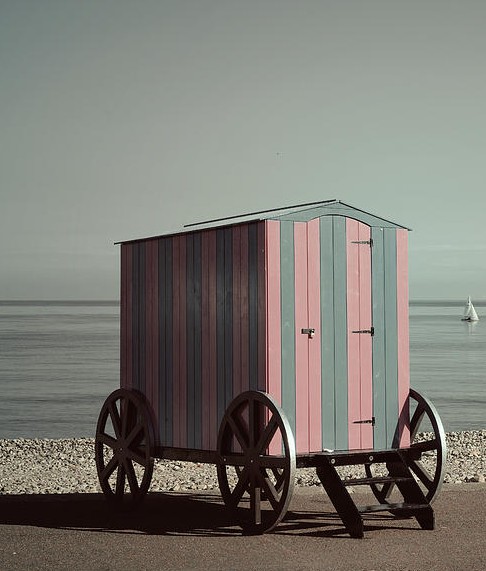
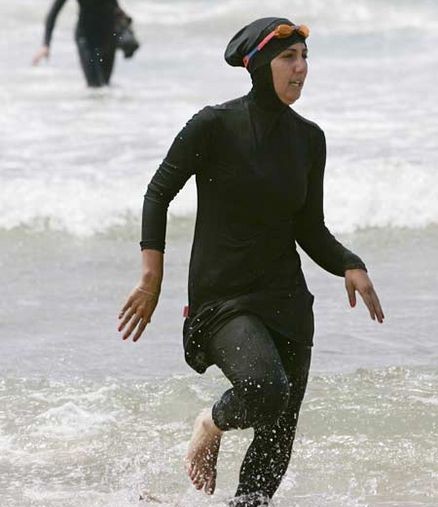


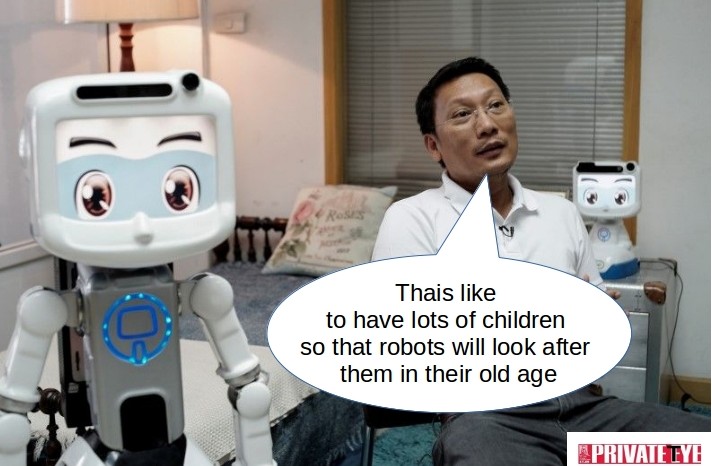

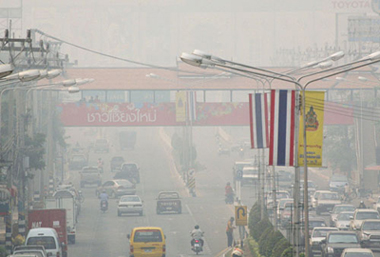
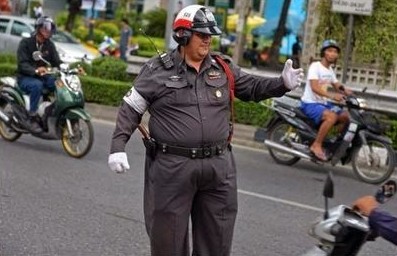
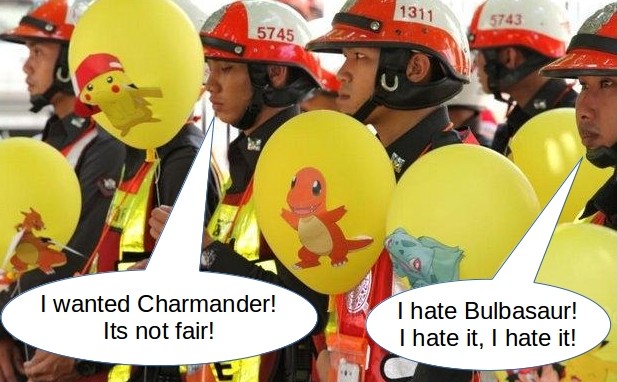
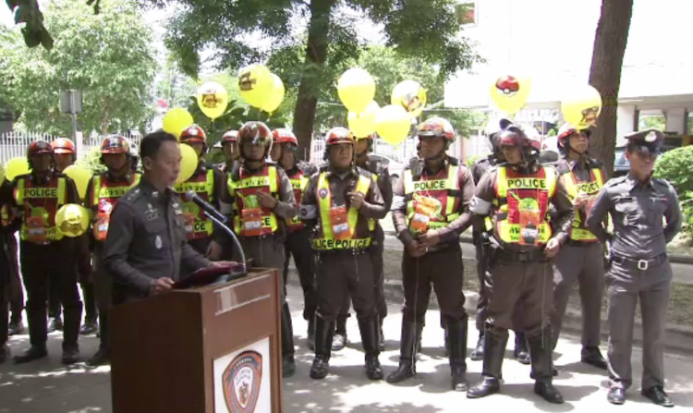

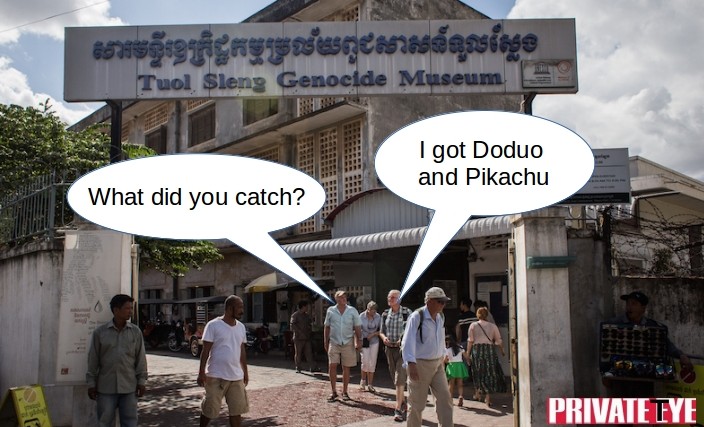
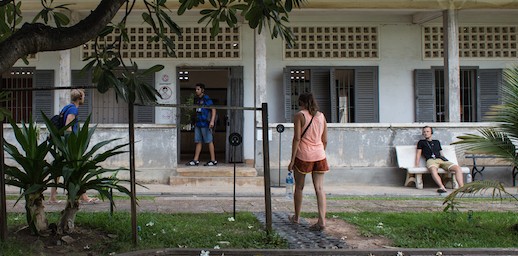
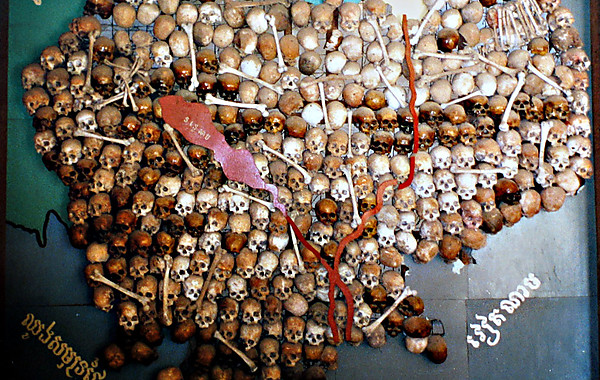
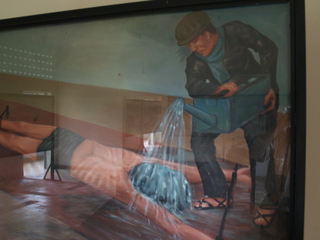
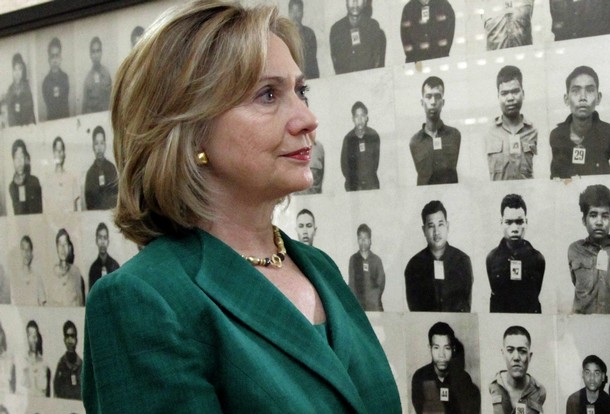

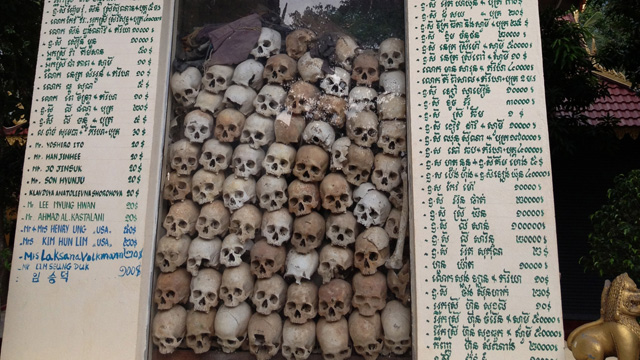
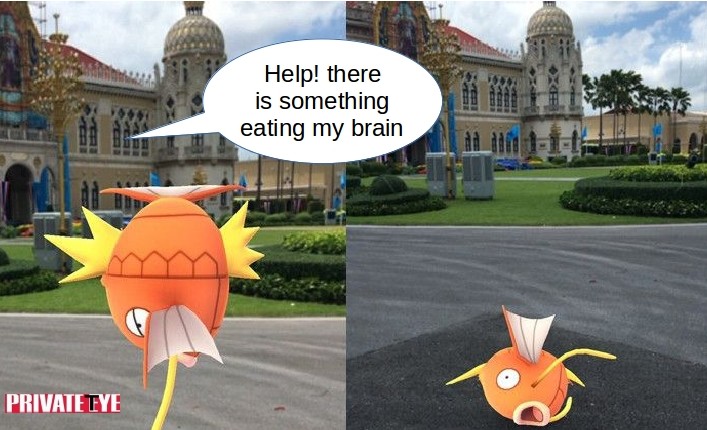
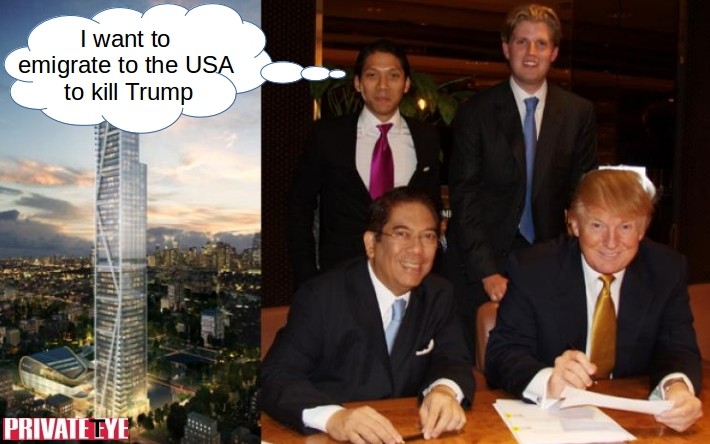
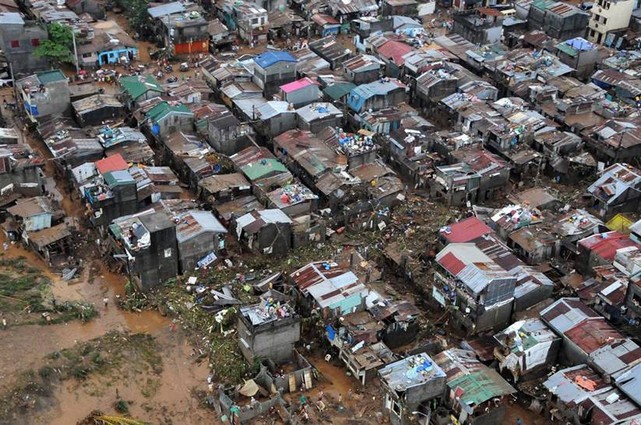
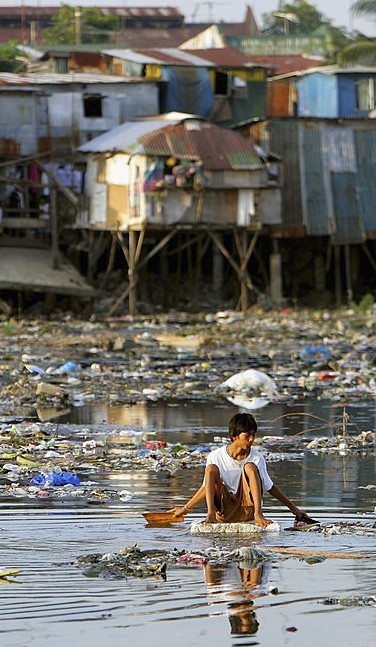
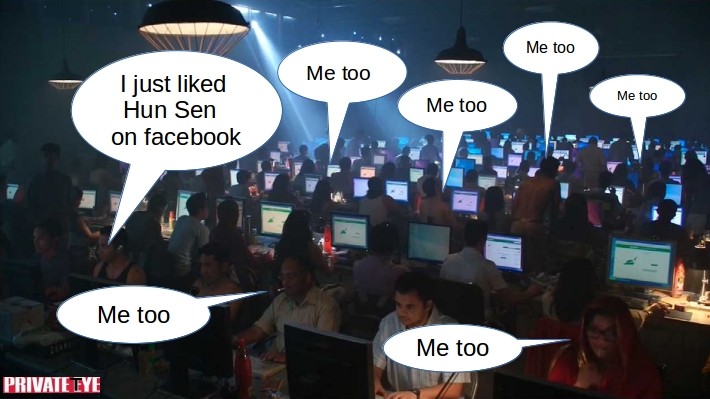
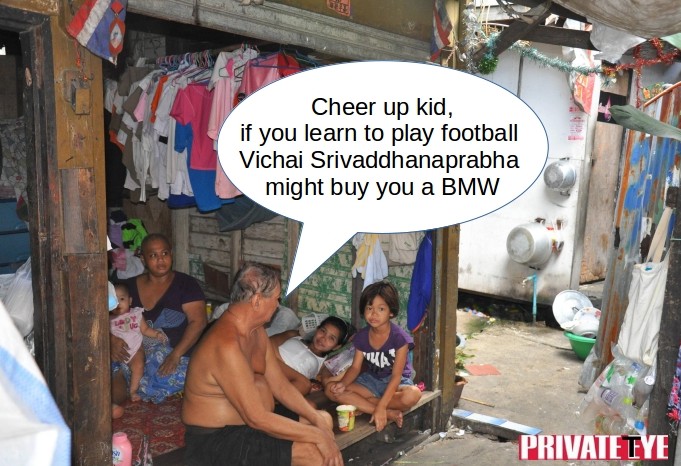

 RSS Feed
RSS Feed
